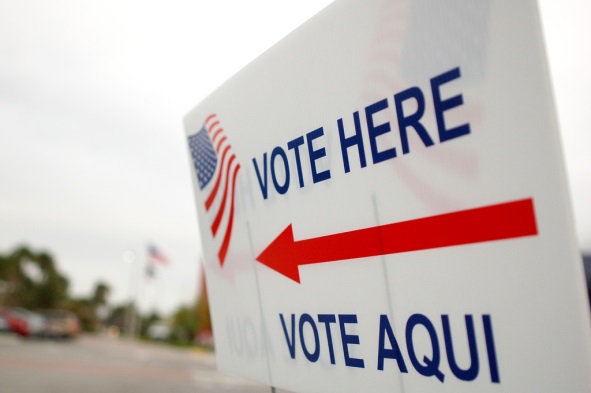10 Things Your Nonprofit Can Do Now To Get Out The Vote And Engage In The Elections

Election day is just weeks away and millions are voting right now, and nonprofits across the country are doing their part to educate voters, engage with candidates, and boost civic participation. While many organizations are confidently and aggressively advocating for their issues and getting out the vote, others are more hesitant due to tax code rules that set boundaries for 501(c)(3) election season advocacy and prohibit public charities from supporting or opposing candidates for public office.
The good news is that Bolder Advocacy is here to help your organization understand the “Rules of the Game!”
Here are 10 ways that your public charity can legally engage in one of the most contentious election seasons to date.
- You can encourage your constituents to pledge to vote on election day (or early). So long as you target your Get Out The Vote (GOTV) efforts based on neutral, nonpartisan reasoning (g. targeting communities with historically low voter turnout rates), you can actively promote the importance of voting and send reminders to vote on election day.
- Just make sure not to emphasize wedge issues when engaging in GOTV communications, and remember the tax code’s ‘facts and circumstances’ test, to avoid unwanted scrutiny and the possibility of turning your election season advocacy into an impermissible partisan activity.
- While 501(c)(3)s are not permitted to support or oppose candidates, they may provide potential voters with information on how, when, and where to vote. By simplifying the voting process for registered voters, you can effectively encourage civic engagement. Just make sure to not suggest who people should vote for, and instead focus your efforts on getting out the vote in a nonpartisan way.
- Given the stakes of the 2020 elections, now is the perfect time for your nonprofit to do what you can do protect the vote and fight back against voter suppression. Volunteer now to join the nonpartisan team at 866-OUR-VOTE. By making sure every vote counts and every voter’s voice is heard, you can help to ensure the election’s results accurately reflect the will of the people.
- What did that candidate say? If the people running for public office get it wrong when talking about your issues, feel free to speak up! Public charities can comment on candidates and campaigns and set the record straight. By focusing on the issues (not the candidates), issuing disclaimers, avoiding personal attacks, and following some other nonpartisan advocacy tips, nonprofits can continue to advocate for their missions even during an election season.
- Your public charity does not have to sit back and remain silent just because an election date looms near. Instead, you can praise and criticize incumbents, who continue to make decisions that may impact your organization’s policy agenda. If your nonprofit has a track-record of working on an issue and times its comments to coincide with the policy decisions made, there are low risk ways to comment on the actions of sitting public officials even if they are up for reelection.
- Is your state one of the 21 that permits voters to register to vote up until election day? If so, your public charity can continue to encourage voter registration until November 3. The more people who vote, the more representative our government becomes. For tips on how to keep your voter registration activities nonpartisan, check out this link.
- According to Nonprofit VOTE, around 12.3 million people are employed by nonprofit organizations, and nonprofit staff in many states may have to show up in-person to cast their ballots. Public charities can give staff paid time off to vote. Provide your team members equal opportunity to mask-up and hit the polls, regardless of their political preferences, and you can simultaneously increase voter turnout and emphasize the importance of voting.
- Are there any measures on the ballot that could impact your organization’s mission? If so, you can encourage people to vote for or against a measure. Just make sure not to tie your ballot measure advocacy to candidates or political parties and abide by any local or state-level reporting requirements. And since the tax code treats ballot measures as pieces of legislation, you’ll also want to keep track of your ballot measure activities and expenses to count them against your organization’s lobbying limit.
- The tax code permits 501(c)(3)s to offer voters free rides to the polls, but they are not allowed to offer these services based on partisan reasons. In other words, public charities may not restrict their services only to people who they think are more likely to vote for particular candidates or political parties. But, if they follow state law and make their services available to everyone, this is another great way to encourage civic engagement.
- The final weeks before an election are also an excellent time to prepare for change. 501(c)(3)s can engage with candidate transition teams if they follow some basic guidelines for keeping their activities nonpartisan. Why not make sure that your organization’s mission and policy priorities are on the minds of the individuals who will be representing the people as government officials next year?
Now is not the time to sit on the sidelines and watch this election pass you by! Get out the vote, and give us a call at 866-NP-LOBBY for more tips on how to ensure your organization’s election season activities remain 501(c)(3) safe.